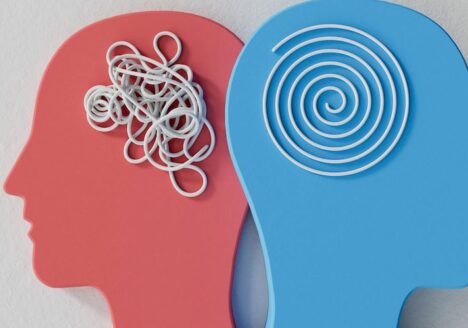Weighted blankets have emerged as a therapeutic tool that provides multifaceted benefits, particularly in reducing stress and improving sleep quality. Within the CORE Compass Framework, they align seamlessly with the goals of Operational and Physical Vitality, fostering both physical health and mental resilience. This article explores the precise applications and benefits of weighted blankets, backed by robust scientific evidence, in the context of this framework.
The Role of Weighted Blankets in the CORE Compass Framework
The CORE Compass Framework emphasizes activities that bolster vitality and overall well-being. Weighted blankets fit naturally within this paradigm by addressing core elements of physical health and operational functionality through better sleep, stress management, and sensory integration.
Key Applications
- Sleep Improvement:
Sleep is foundational to vitality. Weighted blankets enhance sleep by activating the parasympathetic nervous system, which promotes relaxation and deep rest. Meth (2024) demonstrated that using weighted blankets significantly increases melatonin levels, a hormone essential for regulating the sleep-wake cycle. Concurrently, the reduction in cortisol, the stress hormone, creates an environment conducive to restorative sleep. - Anxiety Reduction:
Weighted blankets leverage the principles of Deep Pressure Therapy (DPT) to alleviate stress. By mimicking the calming sensation of a hug, they trigger the release of serotonin and oxytocin, hormones associated with emotional stability and well-being (Aslam, 2023). Studies have shown that this effect significantly reduces pre-sleep anxiety, making weighted blankets a practical tool for managing stress-induced sleep disruptions. - Sensory Regulation:
For individuals with sensory processing challenges, including those with ADHD or autism spectrum disorders, weighted blankets provide consistent, soothing pressure that enhances sensory integration. Larsson et al. (2022) highlighted improvements in sleep and daytime focus among children with ADHD using weighted blankets, underscoring their therapeutic role in sensory regulation. - Enhanced Physical Vitality:
By improving sleep quality and reducing stress, weighted blankets support physical health holistically. Ekholm et al. (2020) showed that individuals using weighted blankets experienced fewer symptoms of fatigue and greater overall energy levels, reinforcing their role in sustaining daily vitality. For individuals recovering from brain injuries, Edwards (2024) demonstrated the feasibility of incorporating weighted blankets to alleviate agitation and improve sleep quality. These findings highlight their adaptability as a therapeutic tool, particularly in recovery scenarios where physical and mental vitality are critical.
How to Incorporate Weighted Blankets into Daily Routines
Integrating weighted blankets into daily practices within the CORE Compass Framework is straightforward yet impactful.
- Choose the Right Weight:
Select a blanket that is approximately 10-12% of your body weight. This ensures the optimal application of pressure for therapeutic benefits without causing discomfort (Eron et al., 2020). - Establish a Routine:
Consistent use of weighted blankets during sleep or relaxation periods maximizes their benefits. For example, incorporating the blanket into a nightly pre-sleep ritual helps create a calming environment that primes the body for restorative rest. - Combine with Complementary Practices:
Weighted blankets pair effectively with other CORE Compass activities, such as mindfulness exercises or healthy sleep hygiene practices. This combination amplifies their stress-reducing and vitality-enhancing effects. - Monitor Outcomes:
Track changes in sleep quality, anxiety levels, and overall well-being to evaluate the blanket’s impact. Tools such as sleep journals or wearable trackers can provide valuable insights into how weighted blankets influence vitality over time.
Scientific Validation of Weighted Blankets
The therapeutic benefits of weighted blankets are supported by a growing body of research:
- Sleep Quality: Meth (2024) found that weighted blankets increased pre-sleep melatonin concentrations, resulting in improved sleep onset and quality. Lindholm et al. (2024) corroborated these findings with actigraphy data, showing increased total sleep time and reduced nighttime awakenings. Additionally, Edwards (2024) highlighted the use of weighted blankets to improve sleep in recovery settings, such as individuals managing agitation during brain injury rehabilitation.
- Anxiety Reduction: Studies by Aslam (2023) and Yu et al. (2024) demonstrated that the deep pressure provided by weighted blankets significantly reduces anxiety, fostering emotional calmness and relaxation.
- General Well-Being: Ekholm et al. (2020) reported that weighted blankets reduced symptoms of fatigue and improved overall vitality in individuals with psychiatric conditions, highlighting their broad applicability to physical and mental health.
Testimonials and Practical Impact
Users of weighted blankets frequently report transformative benefits, aligning with the evidence presented in scientific studies. For example:
- Individuals with insomnia describe faster sleep onset and fewer nighttime disturbances.
- Parents of children with ADHD note improvements in focus and emotional regulation during the day, as observed in Larsson et al. (2022).
- Healthy adults emphasize the calming effect of weighted blankets during stressful periods, linking their use to better overall energy levels.
These testimonials highlight the versatility of weighted blankets in addressing diverse challenges while enhancing operational and physical vitality.
Conclusion: A Practical Tool for Operational and Physical Vitality
Weighted blankets embody the principles of the CORE Compass Framework by addressing sleep quality, stress reduction, and sensory integration—all critical elements of Operational and Physical Vitality. With robust scientific backing and practical ease of use, they offer a transformative yet accessible solution for fostering resilience and well-being.
By incorporating weighted blankets into daily routines and pairing them with complementary practices, individuals can unlock their potential for enhanced physical energy and mental clarity. Whether used to address specific challenges or as a proactive measure for overall health, weighted blankets are a powerful tool for achieving the balance and vitality central to the CORE Compass Framework.
References
Aslam, M. (2023). Weighted blanket therapy for periodic limb movement disorder: a case report highlighting improved sleep quality and reduced symptoms. Cureus. https://doi.org
Edwards, L. (2024). Feasibility of delivering a randomized controlled trial of weighted blanket intervention to help agitation and disturbed sleep after brain injury. Frontiers in Sleep, 3. https://doi.org
Ekholm, B., Spulber, Ş., & Adler, M. (2020). A randomized controlled study of weighted chain blankets for insomnia in psychiatric disorders. Journal of Clinical Sleep Medicine, 16(9), pp. 1567-1577. https://doi.org
Eron, K., Kohnert, L., Watters, A., Logan, C., Weisner-Rose, M., & Mehler, P. (2020). Weighted blanket use: a systematic review. American Journal of Occupational Therapy, 74(2), pp. 7402205010p1-7402205010p14. https://doi.org
Larsson, I., Aili, K., Nygren, J., Johansson, P., Jarbin, H., & Svedberg, P. (2022). Sleep: intervention with weighted blankets for children with attention deficit hyperactivity disorder (ADHD) and sleep problems: study protocol for a randomised control trial. BMJ Open, 12(1), e047509. https://doi.org
Lindholm, A. (2024). Sex differences in children with uncomplicated attention deficit/hyperactivity disorder and sleep problems. Children, 11(6), 636. https://doi.org
Lönn, M., Aili, K., Svedberg, P., Nygren, J., Jarbin, H., & Larsson, I. (2023). Experiences of using weighted blankets among children with ADHD and sleeping difficulties. Occupational Therapy International, 2023, pp. 1-12. https://doi.org
Meth, E. (2024). A weighted blanket increases pre-sleep salivary concentrations of melatonin in young, healthy adults. Sleep Medicine, 115, S246-S247. https://doi.org
Yu, J. (2024). The effect of weighted blankets on sleep and related disorders: a brief review. Frontiers in Psychiatry, 15. https://doi.org




